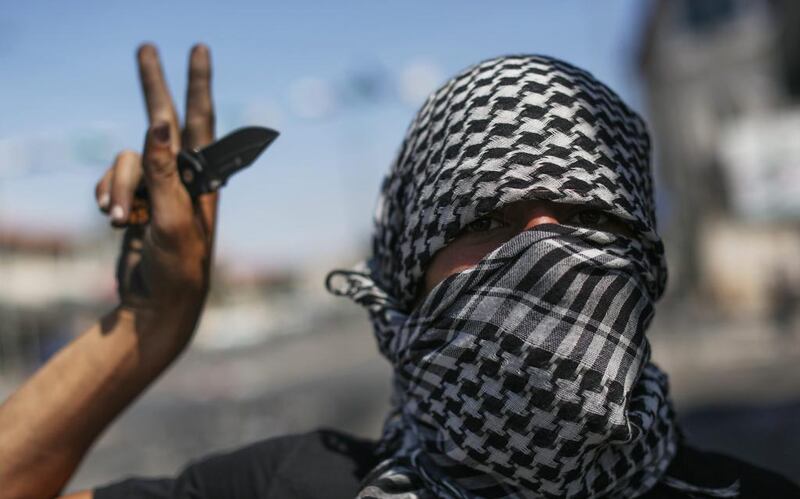TEL AVIV // In a photograph on a Hebrew Facebook page, a handwritten note calls for “revenge for the people of Israel” after the killings of three teenagers in the West Bank. Above the note is a small black cat, sitting quietly on a red cushion.
Called Feline Revenge, it is one of a number of parody Facebook pages that have sprung up in Israel in recent days, an amusing take on a worrying trend – Israelis posting abusive, often racist messages on social networks calling for revenge attacks on Arabs after the bodies of Eyal Yifrach, 19, Gilad Shaar, 16, and Naftali Frenkel, 16, were found last week in a shallow grave outside Hebron.
In an apparent act of revenge, a 17-year-old Palestinian, Mohammed Abu Khdeir, was abducted from outside his home in Shuafat last week and later found dead in a forest in west Jerusalem.
The jailing of four ultra-Orthodox soldiers over comments made on Facebook after the murders highlights that for all the parody accounts – as well as anti-racism protests held in Tel Aviv and Jerusalem – Israeli authorities are concerned about a rising tide of anti-Arab emotion since the West Bank murders.
News of the soldiers' punishment came as anti-Arab demonstrations were held in Jerusalem and Palestinians were attacked on the city's streets.
The soldiers were jailed for 10 days after posting pictures of themselves demanding revenge, as the Israeli police pledged to pursue anyone stirring up racism on social networks through their cybercrime division.
“This is a grave incident that is inconsistent with what is expected of soldiers in the Israel Defense Forces,” an IDF statement said. “Any such incident that commanders learn of will be treated with the utmost severity.”
The current wave of online racism began after the kidnapping of the three Israeli teenagers on June 12, when a website was set up calling for the killing of one Arab an hour until the boys were released.
On Tuesday, the day of the boys’ funerals, a Facebook page labelled “The People of Israel demand revenge” attracted some 35,000 “likes” before it was removed on Wednesday night. The next day a replacement page appeared with the same name.
This one attracting thousands of likes within hours. It was led with a picture of two smiling girls, posing as if for a “selfie” with a sign that called for revenge against Arabs.
The online campaign has led to condemnation from many sections of Israeli society. Both Jerusalem and Tel Aviv have seen pro-peace rallies condemning the calls for revenge against Arabs, and justice minister Tzipi Livni spoke out during a speech in Eilat at the end of last week.
“It doesn’t need to end in murder to be shocking. It is enough to see what is written on the social networks – they have turned into a hotbed of dangerous and violent incitement. This is not the way of the state of Israel. We must not let the extremists win,” she said.
But while it is may be a push to blame such online incitement for actual murders, the backlash has certainly been felt in the real world.
The case of Abu Khdeir also demonstrated that social networks are not only a tool for spreading racism, but misinformation.
Just hours after the news broke of his kidnapping and murder, rumours began surfacing that he was the victim of a family feud rather than of a revenge attack by right-wing Jewish extremists. It was being circulated on social networks even after the police and CCTV evidence dismissed such a scenario.
Even Israeli MPs have argued that what is said in cyberspace needs to be taken seriously, as it can often provoke actual violence.
“There’s a link between social networks and street violence,” Zehava Gal-On, leader of the left wing Meretz party, told public radio.
While the parody accounts surfacing in recent days show that not all Israelis take seriously the calls for revenge against Arabs in Israel, it is difficult to argue with the numbers: at time of writing, the revenge cat parody page had just over 700 “likes” compared to the tens of thousands that the serious pages have attracted.
foreign.desk@thenational.ae





